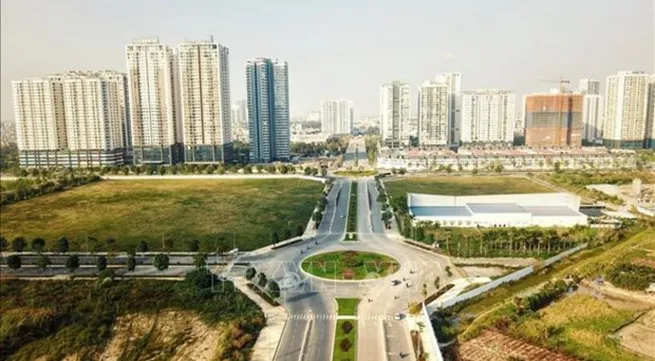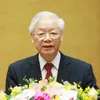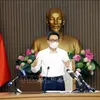Vietnam working to stabilise economy amid challenges from pandemic

Positive outcomes
According to the Ministry of Planning and Investment, Vietnam’s industrial production index (IIP) is estimated to have increased 9.9% in the first five months of this year compared to the same period of 2020.
Agricultural production growth was recorded, with rice production increasing over the same period of 2020. Inflation was under control, while the average CPI in the first five months increased just 1.29% year-on-year, the lowest rate since 2016. Accumulated State budget collections met 49.7% of the annual estimate in the period and were up 15.2% year-on-year.
Export turnover, meanwhile, was estimated to have increased 30.7% compared to the same period last year. The lending interest rate was low, creating favourable conditions for enterprises to borrow capital for production and business. The number of newly-established enterprises during January-May neared 55,800, the most for five years. FDI inflows in the period hit US$14 billion , an annual increase of 0.8%.
Solutions ready
Apart from these encouraging outcomes, the ministry also pointed out a series of challenges in the upcoming months. These include the increasing number of enterprises withdrawing from the market, unstable growth in foreign investment attraction, a pandemic-hit labour market, and difficult social welfare issues.
At a regular Government meeting in May, Minister of Planning and Investment Nguyen Chi Dung proposed a host of solutions. He said the Ministry of Health should cooperate with localities to build pandemic prevention options at industrial parks to avoid interruptions in supply chains, while studying the extension of the prioritised groups for COVID-19 vaccinations.
He projected inflationary pressure to rise over the remaining months of the year, recommending that the Ministry of Industry and Trade (MoIT) closely monitor global price fluctuations and trends in certain costly materials such as steel and cement, so that suitable forecasts can be made and solutions adopted.
Regarding foreign trade, MoIT and the Ministry of Finance were advised to research and prepare plans for adjustments to import taxes as well as for temporarily suspending or adjusting trade remedies for a number of commodities and raw materials with strong price increases, in a bid to meet market demand and promptly support businesses.
As for the disbursement of public investment capital, the Ministry of Planning and Investment proposed that ministries, branches, and localities proactively update, adjust, and announce unit prices of building materials and construction price indexes in line with market developments, to help enterprises and ensure their projects are on schedule. Dung also forecast that the pandemic would remain complex for the time being, saying it is necessary to maintain and replicate effective agricultural production models and methods.





